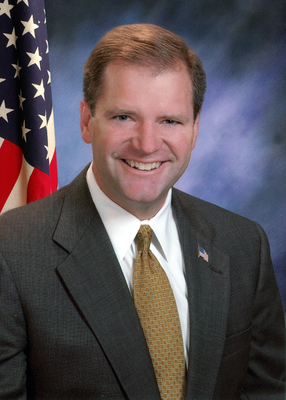
The Illinois Chamber of Commerce is introducing a measure, Senate Bill 3993, to expedite the reopening of business in Illinois in the safest, most equitable way possible. The legislation, sponsored by Senate Republican Leader Bill Brady (R-Bloomington), directs the Illinois Department of Public Health (IDPH) to establish the Safe Place of Business (SPB) protocols on or before May 30, 2020, to give guidance to all businesses and allowing them to reopen once protocols are met.
“The proposal put forward by the Illinois Chamber is an important step in moving the discussion forward on how we safely reopen our state and get our economy moving forward more quickly,” said Senate Republican Leader Bill Brady, sponsor of the measure in the Illinois Senate.
The protocols include customer density limits based on business facilities’ square footage and appropriate social distancing, face covering requirements for all employees and regular cleaning regimens. Protocols may vary, based on the prevalence of COVID-19 diagnoses within the 11 Department of Public Health’s Emergency Medical Services (EMS) regions. Regions with higher instances of COVID-19 may have lower density thresholds and more frequent cleaning requirements. IDPH will publish additional protocols for specific customer-facing businesses as necessary. Any business that complies with their regional SPB protocols will be able to reopen and rehire staff at their discretion as soon as practical.
“Reopening should be safe and equitable for all Illinois communities,” said Illinois Chamber of Commerce President and CEO Todd Maisch. “Thousands of businesses across Illinois have been operating safely from day one of the shutdown. Any business that proves they can operate as safely as the ones that have been open this whole time should be allowed to reopen as soon as possible.”
The legislation also addresses daycare shortages to help ease the burden for parents and workers deemed ‘non-essential’ returning to a physical location of business and those working from home safe and reliable care. All daycares would be allowed to reopen or expand capacity at their discretion as soon as practical in compliance with SPB protocols.
“The government is placing an unreasonable expectation on parents and guardians by not allowing care centers to reopen along with places of business,” said Maisch. “It is impossible for anyone deemed ‘non-essential’ to return to a physical location or continue to work from home for an extended time without proper care for their children and dependents. Besides providing a safe place, care centers provide children and people with disabilities structure, education and social interaction that is vital to their mental health and well-being.”
The legislation allows hospitals and other health care facilities located in regions that have adequate Intensive Care Unit capacity that adhere to their SPB protocols to resume performing any services for any patients needing care. It also directs IDPH to conduct a public information campaign explaining the safety measures that should be implemented to encourage non-COVID-19 patients to seek necessary care.
In addition, the state will adopt common sense strategies such as allowing physicians licensed in one state to practice in others and create financial incentives to accelerate the implementation of tele-medicine to allow the health care community to better assist the state’s response in public health emergencies.
Finally, to better prepare Illinois in the case of future pandemics or emergencies, SB 3993 incorporates the legislature into the recovery process by preventing the governor from extending an initial disaster proclamation without the General Assembly passage of a resolution that approves the extension, in whole or in part, within five calendar days after the extension or further proclamation.
If, due to health or safety concerns, the General Assembly is unable to convene to approve the extension, the extension may remain in effect with written certification from the Speaker of the House, the Senate President and the Minority Leaders of the House and Senate.
You can view more information here.











